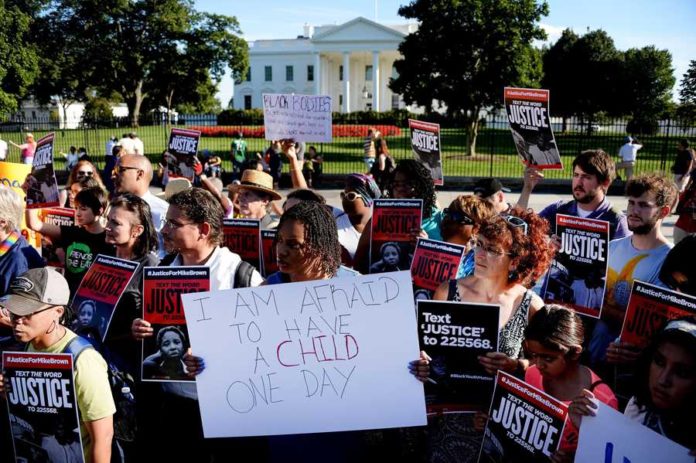The events unfolding in Ferguson, Missouri, just before our return to campus remind us that the work of perfecting our union—indeed, humanity—is incomplete. On Aug. 9, the unarmed and black Michael Brown was shot and killed by white officer Darren Wilson in what has been called racially motivated police brutality.
A fair observer might comment that we do not yet have all of the facts, but that would be missing the point. While Michael Brown’s family and friends are certainly grieving his loss, even they are aware of what the protests in Ferguson represent. Though it may seem obvious to many black Americans and a growing number of their white compatriots, the harsh realities of race in America go largely unnoticed by a troubling number. It is a tragic and inescapable fact of American life that race determines one’s place in and interaction with society. At the end of the day, the justifiability of Officer Wilson’s actions have nothing to do with the persistent racial issues plaguing this country. Officer Wilson may or may not have acted appropriately, but race is certainly a factor in police interactions.
Setting the question of race aside for a moment, what followed Michael’s death has proven almost as shocking to the conscience. For days after the shooting, the heavily militarized response of the Ferguson Police Department led many to comment that Ferguson looked more like a warzone than an American city.
While there were certainly incidents of lawlessness intermingled with peaceful protests, one cannot help but wonder whether the police response helped escalate tensions to the breaking point. Viewing the coverage of Ferguson in the days following the shooting, it is not difficult to imagine why police presence in black communities is often termed “the occupation.”
Why, then, do black communities often feel like they are occupied rather than served by the police? The answer is white privilege and the criminalization of black men which is difficult for some to understand.
Our lives are still very segregated, and we often lack knowledge of how other groups live. In America, whiteness carries with it certain privileges. White interactions with police often take on a different nature than black interactions with police. White people are less likely to be stopped in their vehicles or on the street. White people are accustomed to cordial interactions with the police. White people are not accustomed to being automatically treated like criminals. There are exceptions, of course, but black people’s experiences with police are usually the polar opposite.
Submitted by: Amnesty International SRU Chapter







